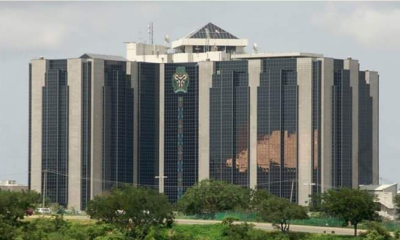Health
Why S/East Govs’ Committee on Health was inaugurated


Governor Ifeanyi Ugwuanyi of Enugu State on Thursday inaugurated the recently constituted “South East Govs’ Forum-Consultative Committee on Health (SEGF-CCH)”, saddled with the responsibilities of facilitating the productive and effective coordination of all health-related programmes in the zone for the wellbeing of the people, among others.
It would be recalled that the South East Governor’s Forum during its economic summit last year identified six thematic areas of priority for rapid development of the region of which health was inclusive.
Inaugurating the committee chaired by a renowned gynecologist and Dean, Faculty of Clinical Medicine, ESUT Teaching Hospital, Parklane, Enugu, Prof. Frank Ezugwu, Gov. Ugwuanyi, who was represented by his deputy, Mrs. Cecilia Ezeilo, expressed confidence that the committee members would discharge their responsibilities effectively, successfully and satisfactorily.
Other terms of reference of the committee, according to the governor include, to “create a multi-sectoral platform that will harness and mobilize abundant private resources to complement government budgetary allocations and channel same towards public health improvements to optimize health care delivery and overall well-being of the citizenry; serve as a medium for grassroots/community-level mobilization and information dissemination on guidelines for achieving improved health outcomes and social wellbeing”.


The terms also include, “to mobilize and strengthen traditional, religious and community-based institutions for health improvement through the promotion of a sustained positive health-seeking behaviour of residents of the entire zone”.
Gov. Ugwuanyi, who noted that the task before the committee was “enormous and challenging”, however stated that the members “are profoundly and properly equipped in terms of knowledge, experience, acumen and diligence”.
In his welcome address, the Director General of the South East Governors’ Forum, Prof. Simon Ortuanya described the committee’s inauguration as a dream come true, disclosing that the forum’s primary focus was “to foster regional integration, accelerate economic development of the region within the context of a united Nigeria and also seek partnership with international donor agencies”.
Prof. Ortuanya explained that the forum is working assiduously with strategic partners, such as the DFID, PERL-ARC, South East Knowledge Hubs, the Bureau for Public Service Reforms, the Presidential Enabling Business Environment Council (PEBEC), among others, towards the actualization of its thematic objectives in the health sector.
The Director-General maintained that the committee will provide a veritable platform for the five states to achieve their health care needs, stressing that “we have kept faith with our mandate”.
He therefore, commended the DFID, World Bank UNSAID, UNICEF and other donor agencies for their support and expressed optimism about the committee’s ability to deliver on its assignment.


Responding on behalf of other members of the committee, the Chairman, Prof. Ezugwu, commended the South East Governors for giving health care delivery in the zone the attention it deserves.
He assured the governors of the members’ commitment towards enhancing the health needs of the people, stressing that with the caliber and integrity of the committee members they will realize the noble objectives.
“I carefully studied the terms of reference and identified healthcare agenda of the South East governors to be in tandem with the World Health Organization not only in the social, physical and economic health of the people but also in all area of health care delivery,” he said.
Other members of the committee include, Dr. Fintan Ekochin; Dr. Mrs. Angela Uwakwem; Dr. Joe Akabuike; Dr. John Ahukanna; Dr. Dan Umezuike; Most Rev. Dr. CVC Onaga; Prof. Mrs. Adaobi Obasi; Mr. Ogbonna Ogwo; HRM Igwe Alex Onyido; Dr. Sunday Nwangele and
Sir Chinedu Enemuoh, who serves as the secretary.
Health
Cybercriminals Successfully Encrypted Data in Ransomware Attacks on Nearly 75% of Healthcare Organizations, Sophos Survey
Only 24% of Healthcare Organizations Were Able to Disrupt a Ransomware Attack Before Attackers Encrypted Their Data. This is the Lowest Rate of Disruption in 3 Years, reports SANDRA ANI


Sophos, a global leader in innovating and delivering cybersecurity as a service, today shared its sector survey report, “The State of Ransomware in Healthcare 2023,” which revealed that, among those organizations surveyed, cybercriminals successfully encrypted data in nearly 75% of ransomware attacks.
This is the highest rate of encryption in the past three years and a significant increase from the 61% of healthcare organizations that reported having their data encrypted last year.
In addition, only 24% of healthcare organizations were able to disrupt a ransomware attack before the attackers encrypted their data—down from 34% in 2022; this is the lowest rate of disruption reported by the sector over the past three years.
“To me, the percentage of organizations that successfully stop an attack before encryption is a strong indicator of security maturity. For the healthcare sector, however, this number is quite low—only 24%. What’s more, this number is declining, which suggests the sector is actively losing ground against cyberattackers and is increasingly unable to detect and stop an attack in progress.
“Part of the problem is that ransomware attacks continue to grow in sophistication, and the attackers are speeding up their attack timelines. In the latest Active Adversary Report for Tech Leaders, we found that the median time from the start of a ransomware attack to detection was only five days. We also found that 90% of ransomware attacks took place after regular business hours. The ransomware threat has simply become too complex for most companies to go at it alone. All organizations, especially those in healthcare, need to modernize their defensive approach to cybercrime, moving from being solely preventative to actively monitoring and investigating alerts 24/7 and securing outside help in the form of services like managed detection and response (MDR),” said Chester Wisniewski, director, field CTO, Sophos.


Additional key findings from the report include:
- In 37% of ransomware attacks where data was successfully encrypted, data was also stolen, suggesting a rise in the “double dip” method
- Healthcare organizations are now taking longer to recover, with 47% recovering in a week, compared to 54% last year
- The overall number of ransomware attacks against healthcare organizations surveyed declined from 66% in 2022 to 60% this year
- Compromised credentials were the number one root cause of ransomware attacks against healthcare organizations, followed by exploits
- The number of healthcare organizations surveyed that paid ransom payments declined from 61% last year to 42% this year. This is lower than the cross-sector average of 46%
“In 2016, the Red Cross Hospital of Córdoba in Spain suffered a ransomware attack that reached servers and encrypted hundreds of files, medical records and other important patient information. It was a major disruption to our operations and interfered with our ability to care for our patients. The stakes are high in ransomware attacks against healthcare organizations—and attackers know that—meaning we’ll always be a target. After this ransomware attack, we worked hard with Tekpyme to bolster our defenses, and now we have reduced our incident response time by 80%. I think the industry as a whole is making improvements, but there is still work to do, because of the constantly changing nature of cybercrime. Hopefully healthcare organizations can leverage the help that is available from security vendors such as Sophos to prevent a very real ‘threat to life’ if systems go offline due to a ransomware attack,” said José Antonio Alcaraz Pérez, head of information systems and communications at Cruz Red Andalusia in Spain.
“Cyberspace today is ripe with technically sophisticated actors looking for vulnerabilities to exploit. What all this translates to is a multidimensional cyberthreat of actors who have the tools to paralyze entire hospitals. Partnering with the private sector is critical to our mission. The information [they] share has real-world impacts and can save real businesses and real lives,” said Christopher Wray, FBI Director.
Sophos recommends the following best practices to help defend against ransomware and other cyberattacks:
- Strengthen defensive shields with:
- Security tools that defend against the most common attack vectors, including endpoint protection with strong anti-ransomware and anti-exploit capabilities
- Zero Trust Network Access (ZTNA) to thwart the abuse of compromised credentials
- Adaptive technologies that respond automatically to attacks, disrupting adversaries and buying defenders time to respond
- 24/7 threat detection, investigation and response, whether delivered in-house or by a specialized Managed Detection and Response (MDR) provider
- Optimize attack preparation, including regularly backing up, practicing recovering data from backups and maintaining an up-to-date incident response plan
- Maintain security hygiene, including timely patching and regularly reviewing security tool configurations
To learn more about the State of Ransomware in Healthcare 2023, download the full report from Sophos.com.
*The State of Ransomware 2023 survey polled 3,000 IT/cybersecurity leaders in organizations with between 100 and 5,000 employees, including 233 from the healthcare sector, across 14 countries in the Americas, EMEA and Asia Pacific.
Health
LUTH Doctor Slumps And Dies After 72hrs Call In The Neurosurgery Unit


Outrage As LUTH Doctor Dies After 72-hour Non-stop Shift
Tweeps have taken to X to share their thoughts on the death of a young doctor, identified as Dr. Umoh Michael, who died on Sunday after allegedly working 72 hours straight.
According to reports, Michael died during a church service at the United Evangelical Church on September 17. He was said to have worked a 72-hour non-stop shift at the Lagos University Teaching Hospital, Idi-Araba, where he was a resident doctor.
Doctors under the aegis of the Association of Resident Doctors, LUTH chapter, in a letter addressed to the Chief Medical Director, LUTH, Prof. Wasiu Lanre Adeyemo, attested to the fact that the young doctor was overworked.
They claimed Michael returned home at about 3:00 a.m. Sunday after a 72-hour shift in the hospital, adding that he had barely slept in their apartment before that day.
The statement partly read, “We the house officers are in deep grief over the loss of our colleague, a co-house officer (Dr Umoh Michael) who died on 17th September, 2023, after having a 72hrs call in the Neurosurgery Unit.
“He is said to have been on call 72hrs before arriving home on Sunday morning to get set for church service, reaching his worship center (United Evangelical Church) where he slumped in the church at about 11 am.”
“His roommate attested to the fact that Umoh Michael had barely slept in their apartment over the past one week as he was always on call or the day he returned home was around 3 a.m. after surgeries and other activities in the Neurosurgery Unit.”
Reacting to the sad incident, LUTH’s Public Relations Officer, Omolola Fakeye, who spoke on an online platform (not PUNCH) Online said, “It is not true that anybody worked for 72 hours. I have not been briefed about his death.
“We were at a programme yesterday (Monday), but I will find out; I can’t say anything now. I will check the medical report of what could have happened because anybody can say anything, but the medical report will show us what happened.”
May his soul rest in peace.
Health
Why You Need To Drink More Water Than You Use To


Hello! It’s the weekend, And as usual, We want to share some quick important healthy living tips with you.
Today, We will be sharing on the IMPORTANCE OF DRINKING ENOUGH WATER.
Do you know that Adult humans are 60 percent water, and our blood is 90 percent water? Now, There isn’t an agreed quantity of water that must be consumed daily. You only need to drink as plenty as you should.
Water can be said to be one of the highest natural medicines to man, As it helps avoid a lot of sicknesses like kidney stones, And it also helps in their healing process.
Here are a few importance of drinking enough water;
1. It boosts skin health and beauty: With dehydration, the skin can become more vulnerable to skin disorders and premature wrinkling.
2. It cushions the brain, spinal cord, and other sensitive tissues: Dehydration can affect brain structure and function. It is also involved in the production of hormones and neurotransmitters. Prolonged dehydration can lead to problems with thinking and reasoning.
3. It regulates body temperature: Water that is stored in the middle layers of the skin comes to the skin’s surface as sweat when the body heats up. As it evaporates, it cools the body. In sport.
4. The digestive system depends on it: The bowel needs water to work properly. Dehydration can lead to digestive problems, constipation, and an overly acidic stomach. This increases the risk of heartburn and stomach ulcers.
5. Adequate water flushes body waste easily: For sweating and removal of urine and feces.
6. The airways need it: When dehydrated, Airways are restricted by the body in an effort to minimize water loss. This can make asthma and allergies worse.
7. It helps maintain body blood pressure.
8. It prevents kidney damage: The kidneys regulate fluid in the body. Insufficient water can lead to kidney stones and other problems.
9. Consuming enough water instead of sweetened drinks helps with weight loss.
10. Joint Lubrication: Cartilage, found in joints and the disks of the spine, contains around 80% water. Dehydration can reduce the joints’ shock-absorbing ability, leading to joint pain.
Please drink enough water!
-



 Politics2 days ago
Politics2 days agoLagos Water Corporation Starts Protest Against Sack Of Workers
-



 News4 days ago
News4 days ago“80% Of Buildings In Lekki Have No Approval” – Lagos State Commissioner For Physical Planning & Urban Development Reveals
-



 Entertainment4 days ago
Entertainment4 days agoCelebrities Turn Up For The Dedication Of Ali Baba’s Triplets In Lagos
-



 Finance3 days ago
Finance3 days agoBanks To Now Charge 0.5% Cybersecurity Levy As Directed By CBN; Netizens React
-



 TechNews4 days ago
TechNews4 days agoSIM Boxing, And The Unboxing of a Crime Syndicate
-



 GRTech3 days ago
GRTech3 days agoSHELT SI Achieves Cisco Select Partner Certification
-



 News2 days ago
News2 days agoEkiti Students Caught On Camera Bullying A Fellow Student, Have Been Expelled
-



 Politics13 hours ago
Politics13 hours agoSenate Amends NDLEA Act, Approves Death Penalty For Dangerous Drugs Manufacturers And 15 Years Imprisonment For Users








